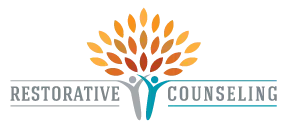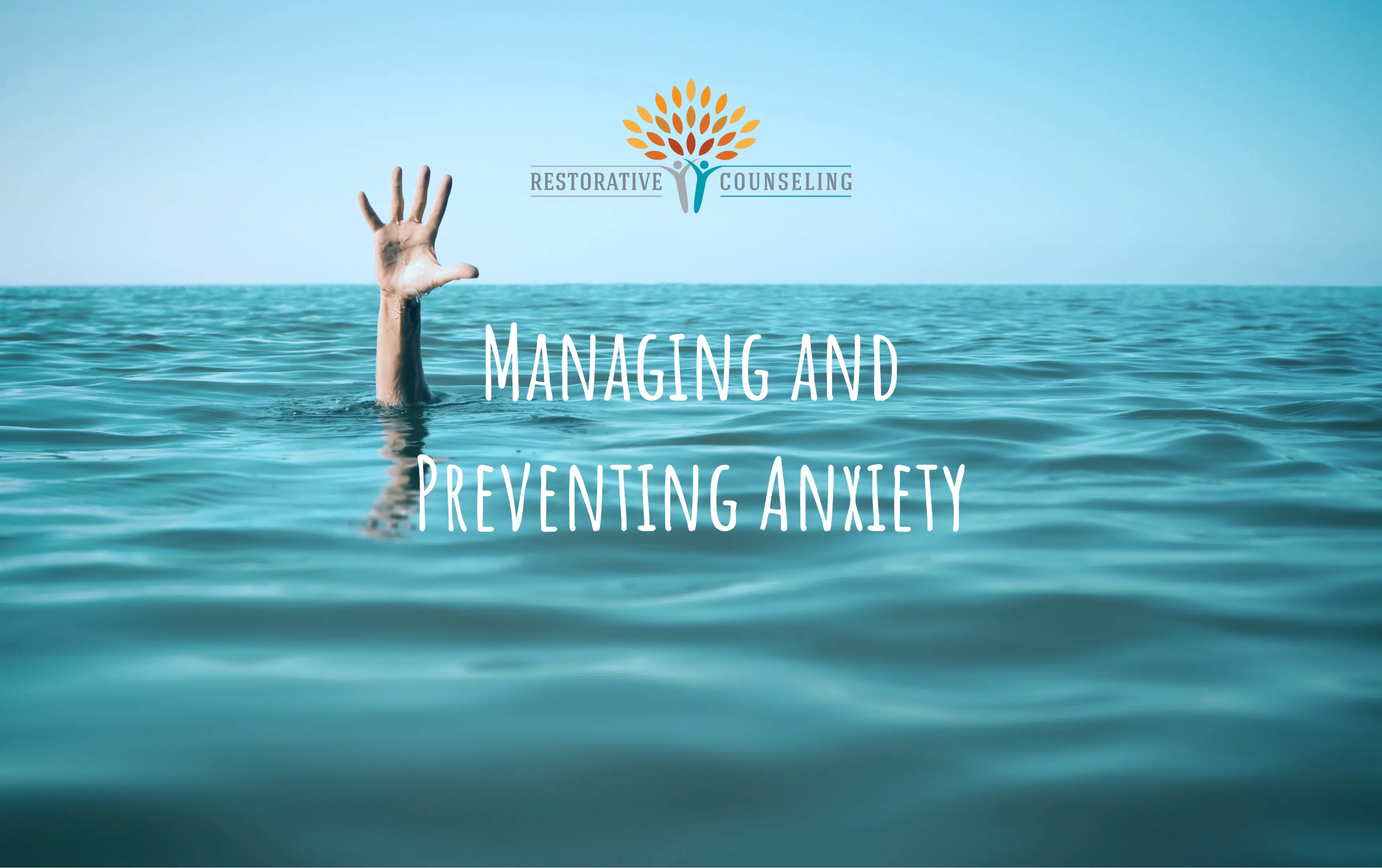Written by Stephanie Grunewald, PhD
Have you ever felt tense, restless, or on edge? Perhaps you cannot stop your mind from considering endless “what-if” scenarios. You feel your body getting warmer, your heart beating faster, and your breath getting shallower. This overwhelming sensation between mind and body can feel so suffocating or make you feel like you are drowning.
For some, this is expressed in irritability or a short-temper while others shut down and freeze. If you have ever experienced this, you are not alone! According to the Anxiety and Depression Association of America, anxiety disorders are the most common mental illness in the United States. In fact, anxiety disorders affect more than 40 million adults in the United States.
How to Recognize Anxiety
According to the American Psychological Association, “People with anxiety disorders usually have recurring intrusive thoughts or concerns. They may avoid certain situations out of worry. They may also have physical symptoms such as sweating, trembling, dizziness or a rapid heartbeat.”
Anxiety means many different things for different people. It may change over time and impact you differently at various points in your life. For some, social situations create great fear and stress; just the sheer thought of being around a lot of people can be overwhelming. Anxiety can make people feel completely out of control of thoughts, emotions, and reactions.
What can you do about it?
Here are 5 quick tips for managing anxiety:
1. Take slow, deep breaths.
This doesn’t mean to just quickly breath in and out of your nose! Take slow deliberate breaths using Diaphragmatic Breathing. Breath in through your nose through your diaphragm. You will know you are doing it correctly when you can feel/see your belly rising when you inhale. Inhale through your nose and slowly exhale through your mouth. Some people find it helpful to count while doing this…inhale-2-3-4, hold-2-3-4, exhale-2-3-4-5-6. Take longer to exhale than to inhale. Notice the change in your body as you focus on your breathing.
2. Evaluate the facts of the situation.
Anxiety can have a powerful effect on your thoughts and emotions. Activating the logical part of your brain to assess the emotional response can be beneficial. Assess the perceived threats vs. the actual threats. Is there any evidence to support the idea that I am going to get fired or am I just feeling really anxious about how that presentation went?
3. Relax your muscles.
Using Progressive Muscle Relaxation is a technique for tightening and releasing your muscles to release tension. A great resource for Progressive Muscle Relaxation can be found here.
4. Bring yourself back to the present situation.
Anxious thoughts and feelings can easily carry you away. Use your 5 senses to land you in the room: what do you hear, see, smell, feel, and taste?
5. Self-Soothe.
You may need to step away from a busy party for a moment to cool down and collect your thoughts. Taking some time to color can activate creativity within yourself, which will help you feel calmer, mentally clearer, happier, and more relaxed. Using relaxing scents, such as lavender can be soothing as a candle, bath salts, or essential oils. Don’t forget to stay hydrated! Drinking tea, such as chamomile, is not only relaxing but can also significantly decrease anxiety.
In addition to calming anxiety in the moment, prevention is key!
Some strategies for managing anxiety or warding off intense panic attacks include:
1. Routinely exercise.
Research indicates that walking every day for 15-20 minutes can reduce symptoms of anxiety. Exercise will not only make you feel better about yourself but will also increase endorphins that are essential to overcoming anxiety.
2. Limit caffeine intake.
Caffeine can make you feel more anxious and exacerbate panic attacks. Stimulants, such as caffeine, tell your central nervous system to go into “fight, flight, or freeze” mode. Not only can this worsen anxiety, but it can also trigger a panic attack. You do not have to fully eliminate caffeine from your diet, but be aware of all the sources: coffee, tea, soda, chocolate, medications, etc.
3. Increase confidence.
When you feel better about yourself, you often feel better about your abilities to conquer anything that comes your way. Your anxiety does not control you! You have the power to control your mind and body, but first, you must believe in your power to do so.
The greatest weapon against stress is our ability to choose one
thought over another. – William James
For more helpful tips on managing and preventing anxiety, check out this great infographic at Tips to Manage Anxiety and Stress. Also, here are some FREE Apps for managing anxiety:
CALM – visually relaxing scenes with matching auditory sounds, no guided meditation.
HEADSPACE – Live a happier, healthier life with just a few minutes of meditation a day. Headspace is a great way to learn more about meditation and start a regular practice. For 10 minutes a day for 10 days, you’ll practice guided exercises and learn about meditation.
MINDSHIFT – stress tips, emotional tracking/journaling, various guided meditations, and more.
PERSONAL ZEN – clinically proven to reduce stress by playing a fun game. Built by a team of leading neuroscientists and mobile developers, playing Personal Zen trains your brain to lower stress and anxiety.
WORRY FLOAT – type your worries in the balloon and watch it float away, the bigger the worry the longer it will take to float away to act as good visual elimination.

Hello! I’m Stephanie.
I help adults identify strengths and learn strategies to manage stress, deal with life transitions, and overcome anxiety. Read more about me.
Follow Restorative Counseling
Sign up for our newsletter

